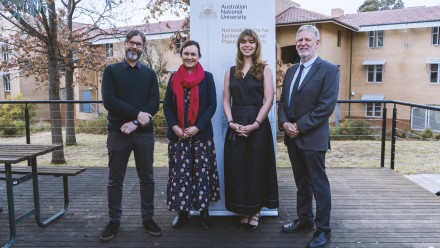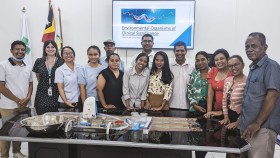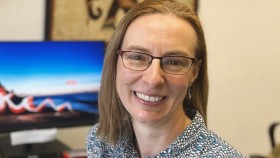Off the fence: Jasmine Pearson’s journey to postgraduate excellence
Share
If she could time-travel back two years, ANU graduate Jasmine Pearson would astonish her younger self with the news of her Postgraduate Medal for Academic Excellence. “I never ever could have predicted that,” she says. “I would say, ‘Well done!’”
Reflecting on her time at university, Jasmine has learned that it’s very difficult to predict what the future holds. “I had no idea that I’d be here, doing an advanced program and looking into drug research,” she says.
But she’s glad she took the leap to try all that.
“The outcome has been so much more positive than I had imagined,” says Jasmine, who graduated from the National Centre for Epidemiology and Population Health (NCEPH) last week with a Master of Public Health (Advanced).
“Her examiners were really impressed,” remarks Professor Kathryn Glass, NCEPH’s Associate Director of Education. “Postgraduate medals are awarded rarely to MPH students; this is a big achievement for Jasmine.”
Exploring the uncharted
Once a child obsessed with cholera after reading about it in books, Jasmine developed her interest in human biology and various diseases at a young age.
As she learned more, she realised that the most interesting aspects of diseases were the human behaviours that could potentially prevent diseases.
This realisation ultimately pushed her toward public health — “before it was cool, as I decided before the pandemic,” Jasmine jokes.
In 2020, Jasmine joined ANU as a Tuckwell Scholar. She opted for a vertical double degree pathway, combining a Bachelor of Health Science with a Master of Public Health by coursework.
But soon, she discovered an advanced option in her master’s program, where she could spend one semester on a completely self-directed research project.
Initially on the fence about the advanced program, she decided to give it a go to gain research experience.
“You were able to contact your own supervisor and figure out your own topic,” Jasmine says, “The freedom of that appealed to me.”
For her project, Jasmine contacted Associate Professor Anna Olsen from the ANU School of Medicine and Psychology for advice.
“I met Anna at a student advocacy event a few years ago. She was a guest speaker who talked about research surrounding drug checking, which sounded incredible,” Jasmine recalls.
Drug checking—the harm reduction service that allows people to test and find out what’s in their drug—is relatively new and sometimes controversial in Australia.
Drug checking services were first approved and trialled at music festivals in the Australian Capital Territory (ACT) in 2018 and 2019, and the first fixed-site drug checking service, CanTEST, opened in Canberra in 2022.
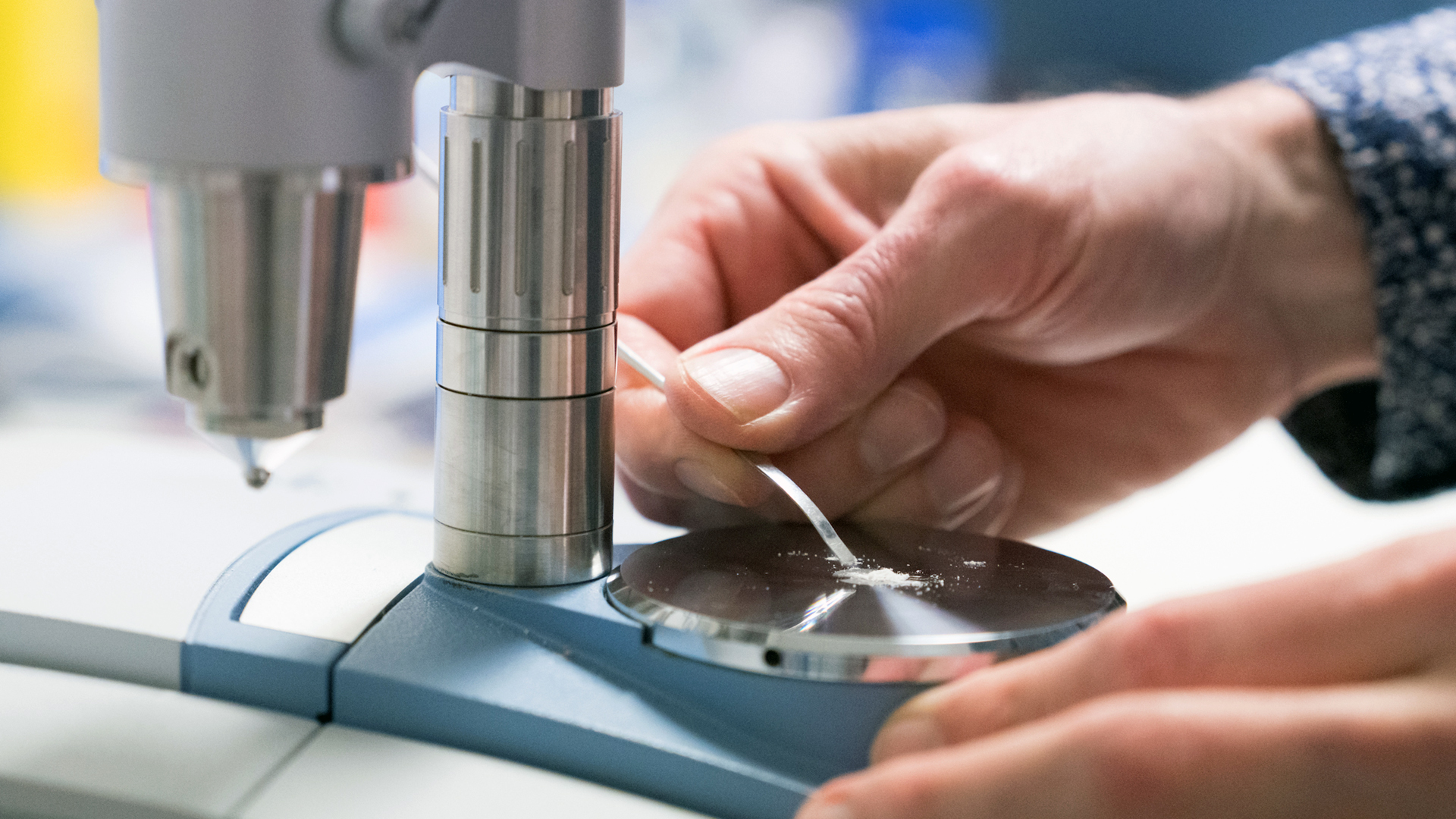
Drug checking service at the CanTest Pill Testing Clinic in Canberra. Image: Nic Vevers/ANU
“I liked that drug checking was one area where Canberra is actually ahead of many other Australian jurisdictions, and it’s very relevant to students,” says Jasmine, “I wanted to know more about those people who do use drugs and aren’t engaging with drug checking.”
Associate Professor Olsen later became Jasmine’s supervisor on her project to investigate the engagement in drug checking by people who regularly use drugs.
With scant research in this area in an Australian context, Jasmine set off to become among the first to analyse data on how people engage with drug checking services in Australia.
“I didn’t want to do research for the sake of doing research. I was keen to try and find something new,” she says.
Jasmine visited the National Centre for Drug and Alcohol Research (NDARC) at UNSW Sydney and met the researchers involved in the Ecstasy and Related Drugs Reporting System (EDRS) and the Illicit Drug Reporting System (IDRS).
Researchers at UNSW granted her access to 1528 interviews in the EDRS and IDRS surveys conducted in 2023 to monitor emerging trends in illicit drug use, markets and behaviours.
“As a junior researcher, I felt really lucky to be given access to that,” says Jasmine.
She did a secondary data analysis to describe the extent to which people who use drugs in Australia engage in drug checking and identify potential barriers and facilitators.
“A key takeaway was that people who used drugs in our sample were engaging with drug checking despite the limited access to formal drug checking services, mostly using at home testing kits,” Jasmine notes.
“This indicates a level of interest in the content of illicit drugs among people who use drugs in our samples of people who use drugs in Australia.”
Specifically, people who sold drugs for profit were more likely to have checked their drugs. Meanwhile, however, many reported that they had not engaged with CanTEST because they trusted the information supplied by their dealer and were not aware of the service.
“While it requires more research into the complex relationship between people who use drugs and people who sell drugs, this was an interesting finding to me,” comments Jasmine.
Despite its small sample size, Jasmine’s study indicates that engagement with the new fixed-site service is occurring, albeit in the presence of barriers.
Grateful for her enthusiastic and helpful supervisors, Jasmine hopes to rerun her analysis with the 2024 data once they’re available to see if there are any other conclusions to be drawn. “I think it’s given me a hunger to do a similar thing again,” she says.
“It was great to get a snapshot of how people who use drugs might think of CanTEST,” she says, “I hope that down the line, my work might support the need for more, better access to drug checking services in Australia.”
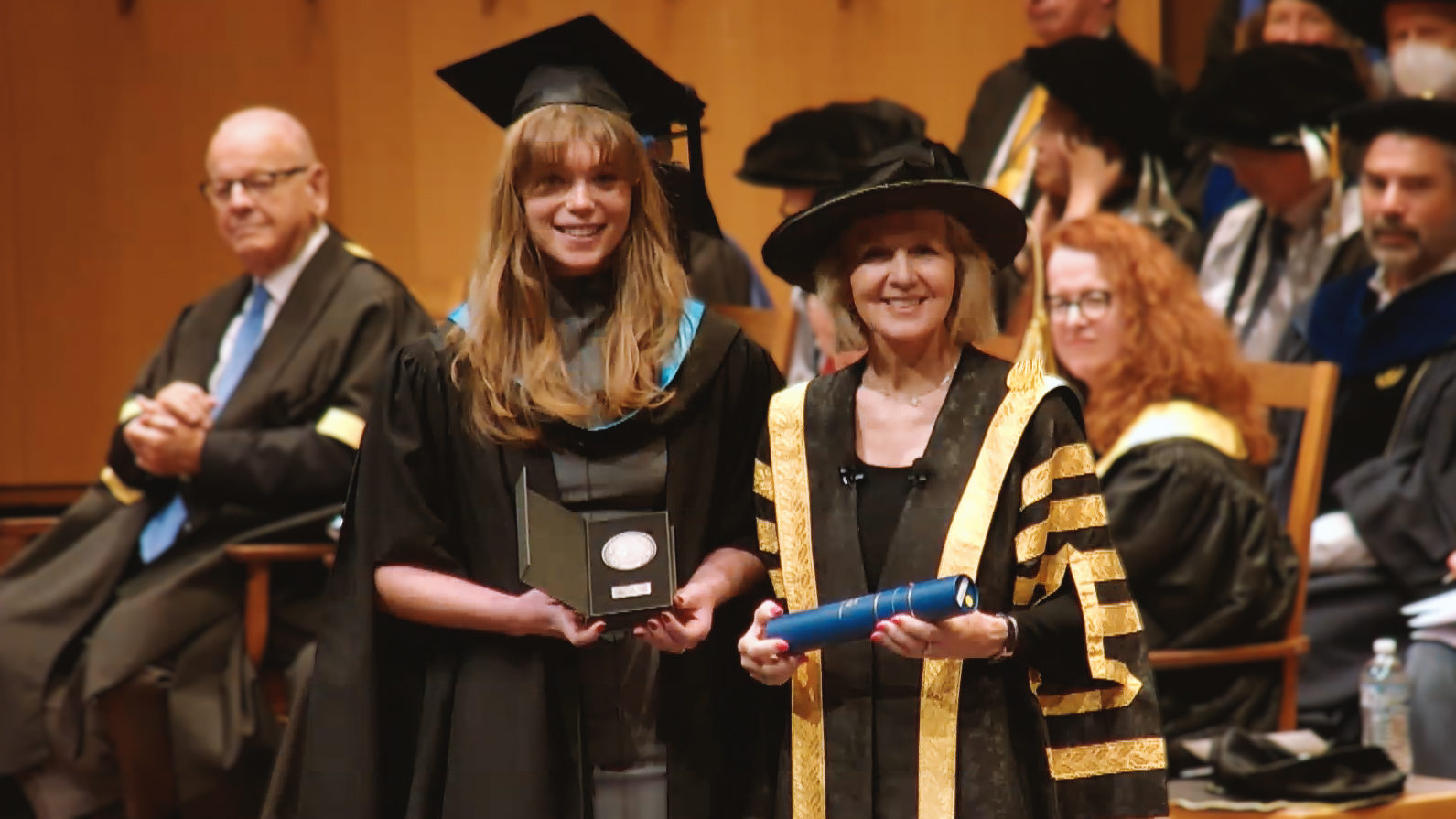
Jasmine Pearson and The Hon Julie Bishop, Chancellor of the Australian National University, at the 2024 July ANU Graduation Ceremony.
Embracing the uncertain
Looking back at her journey of the past four years, Jasmine thinks she has had a great time along the way.
“I would say if you’re on the fence about doing something, you should probably just do it,” she advises.
While shifting programs and researching something that’s nowhere on the curriculum can be challenging, it paid off to her as she had more fun travelling through uncertainties and solving problems that may come in the way.
“The question ‘what do you really want to know?’ can be a little bit daunting, particularly when in undergrad things often have right and wrong answers,” she says, “But to have the freedom to figure that out and work with a tight-knit team felt great.”
“Always back up your computer, though” she adds, referring to that one time her laptop got sprinkled on just as she finished the data analysis—another challenge she needed to overcome.
Soon, Jasmine will be exploring the realm of Indigenous health, which has also piqued her interest, as an intern at the Poche Centre for Indigenous Health.
“I’m very keen to do a PhD one day, but right now, I’d like to work for a little bit.”
As for the further future, Jasmine keeps an open mind.
“I have no idea at all! I guess maybe research or policy, which is incredibly broad?” she says.
But for now, the new graduate is having a little holiday in Mexico—without meticulously planning every stop.
“I’m really looking forward to that,” she says, ready to make another step and see how it pans out.







